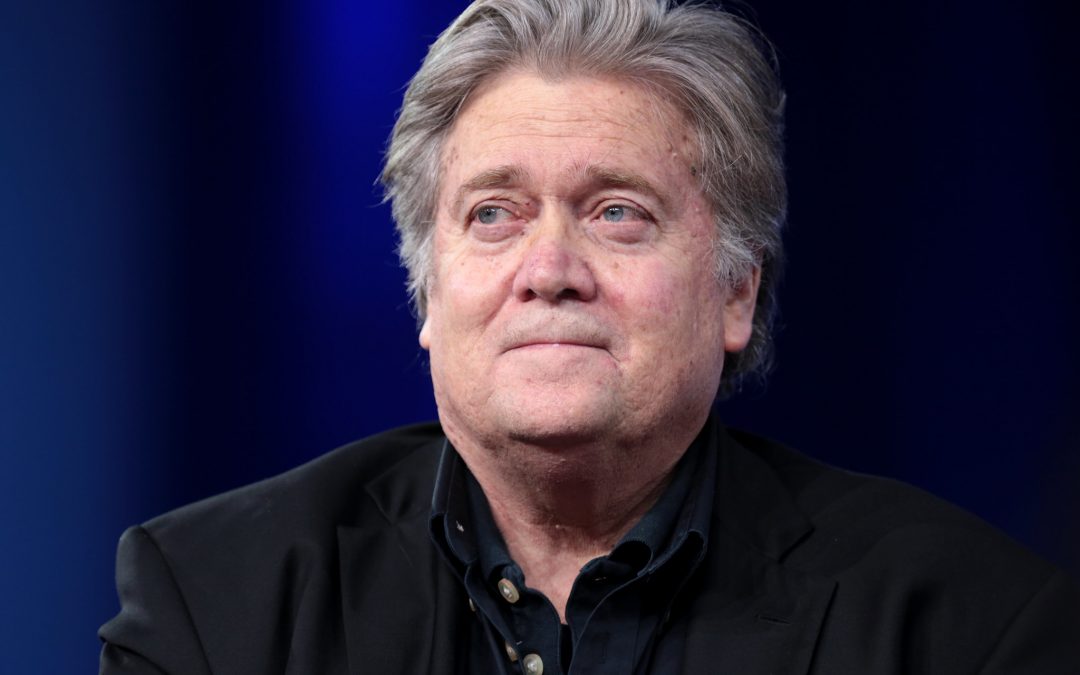WASHINGTON — Whether executive privilege will prevent former Trump aide Steve Bannon from being prosecuted for contempt remains to be seen, according to constitutional law professors who have been following recent developments.
Bannon’s “real defense to contempt is most likely going to be – ‘I was directed by a former president, and the law is not completely clear about what the authority of a former president is — so, I’m just an ordinary citizen trying to figure out what I’m supposed to do here,’” said Jonathan Shaub, an assistant professor of law at the University of Kentucky.
The House voted on Thursday to refer Bannon for criminal contempt after he defied a subpoena from the committee tasked with investigating the Jan. 6 insurrection. The Office of the U.S. Attorney for the District of Columbia will ultimately decide whether to prosecute Bannon.
Bannon based his refusal to comply on former President Donald Trump’s claims of executive privilege. Trump’s lawyers directed Bannon “not to produce documents or give testimony that might reveal information President Trump’s counsel seeks to legally protect,” Bannon’s attorney wrote in a letter to the committee defending the former White House strategist’s noncompliance.
Laurent Sacharoff, a law professor at the University of Arkansas, told Medill News Service that the subpoena itself “has very strong legal standing…in the sense that the information they’re seeking at least appears to be centrally relevant to a legitimate congressional inquiry.”
While Sacharoff said that Bannon’s claim is weak, he added that it is not without cause, as Trump maintains some residual right to assert executive privilege.
“The question is: does that assertion withstand contrary requirements?” Sacharoff said.
The extent of Trump’s executive privilege is currently being tested by Congress, as well as President Biden, he said.
Biden refused to assert executive privilege over the committee’s records request, which resulted in Trump filing a lawsuit to halt the release by the National Archives.
“Seeing that [Congress’] investigation involves both protecting itself as a branch literally against attack and also an understanding of how that happened, …the inquiry has, on a scale from one to 10, a nine or 10 in terms of importance,” Sacharoff said.
A Timing Issue
Given the information’s importance, Sacharoff said he believes Trump’s assertion of executive privilege would fail in the courts but could succeed in delaying the investigation.
Jonathan Adler, a law professor at Case Western Reserve University, similarly said he believes the privilege claims could be an effort to slow down the process.
“I suspect [the claims] are, at least in part, a delaying tactic, an effort to try and forestall any cooperation and participation until after the next election, in the hopes that the inquiry will be ended,” Adler said.
The Extent of Privilege
Questions also remain as to whether executive privilege claims, if successfully asserted by Trump, extend to Bannon. Since Bannon was not a government employee — but rather an adviser — Sacharoff said it is unclear whether the privilege would apply to him.
“I could see a court going either way,” Sacharoff said.
He noted that a judge may recognize the importance of executive privilege to keep candid conversations confidential, but could also view Bannon’s argument as an overreach.
Adler said he believes that some presidential conversations with a private citizen could be privileged, but added that it would have to relate to particularly sensitive matters.
Bannon’s assertion of executive privilege is also weakened by the fact that he is the only person who has been subpoenaed by the committee who has not cooperated at all, Adler said.
“That’s notable in part because there are other people who have been subpoenaed by the committee who might have plausible executive privilege claims, at least with regard to specific sorts of conversations,” he said.
Even if Bannon is prosecuted for contempt by the Department of Justice, he still may not testify before the committee afterward, Shaub said.
“He can go, he can defend himself,” Shaub said. “Even if he’s guilty, it’s a maximum of a year in prison and fine; so, he still may not testify. So they don’t really have the ability to actually force the people who were in the events to testify.”
Shaub said he believes the committee should focus its efforts on Trump’s presidential records and willing witnesses instead.
“If they can get information from those sources, they should have a whole lot of information and probably enough to complete their task without having to worry about forcing Bannon or those who remain loyal to Trump to testify,” he said.

